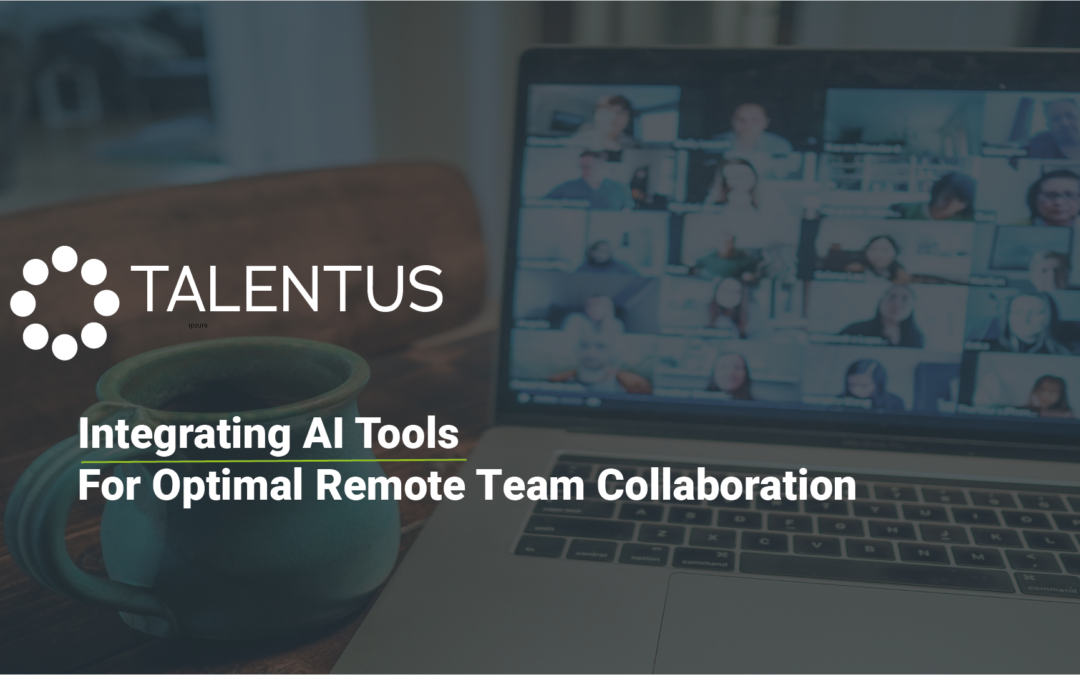As organizations continue to embrace the flexibility and potential offered by remote teams, the integration of artificial intelligence (AI) tools emerges as a pivotal strategy to enhance productivity and foster seamless collaboration. In this comprehensive guide, we delve into the art of integrating AI tools with remote teams, unlocking a world of possibilities that drive success and innovation.
1. Selecting AI Tools Tailored to Your Needs
The journey to successful integration commences with a deliberate choice of AI tools aligned with your team’s objectives. From communication and project management to data analysis and beyond, the AI landscape offers a plethora of solutions designed to optimize various aspects of remote teamwork. Be it the intuitive interface of platforms like Slack and Trello or the data-driven insights of advanced analytics tools, the key lies in identifying tools that resonate with your team’s unique dynamics.
2. Crafting Fluid Communication Channels
Effective communication serves as the cornerstone of remote collaboration. Leveraging AI-powered chatbots, such as the intelligent assistant “Who” from Microsoft Teams, elevates communication efficiency by swiftly addressing routine queries, scheduling meetings, and disseminating updates. Furthermore, AI-driven language translation tools dissolve linguistic barriers, fostering an inclusive environment where diverse team members interact seamlessly.
3. Elevating Project Management Efficiencies
Overcoming geographical disparities while managing projects demands streamlined processes. AI tools prove invaluable by automating task delegation, setting deadlines, and issuing timely reminders. Platforms like Monday.com employ AI algorithms to predict potential bottlenecks and suggest adaptive measures, ensuring projects remain on course even amid geographical dispersion.
4. Unveiling Insights through Data Analysis
AI’s prowess in swiftly processing voluminous data unlocks a realm of valuable insights. Remote teams can harness AI-driven analytics tools to unveil predictive trends, identify customer preferences, and extrapolate actionable business intelligence. Armed with such insights, remote teams make informed decisions, proactively adapting to shifting market dynamics.
5. Nurturing Personalized Learning Journeys
Empowering remote team members with continuous learning translates into enriched capabilities. Adaptive learning platforms, underpinned by AI, gauge individual skill gaps and curate targeted training modules. Through personalized learning experiences, remote professionals can upskill and remain relevant, fueling collective growth and resilience.
6. Liberating Creativity via Task Automation
Monotonous tasks can stifle innovation. Enter AI-driven automation, which liberates remote teams from repetitive chores, enabling them to channel energy into strategic initiatives. By automating tasks spanning from email sorting to data entry, these tools not only enhance accuracy but also empower teams to focus on high-impact endeavors.
7. Fostering Immersive Virtual Collaboration
AI bridges geographical divides by nurturing virtual collaboration. Augmented by AI, virtual reality (VR) and augmented reality (AR) technologies create immersive digital workspaces, enabling remote team members to brainstorm, ideate, and collaborate as if sharing a physical space. This novel approach nurtures camaraderie and synergistic thinking.
8. Safeguarding Data Integrity
As remote work hinges on robust data security, AI steps in as a sentinel. AI-powered security solutions monitor and detect anomalies, promptly flagging potential breaches. This proactive approach ensures the integrity of remote work environments, building trust among clients and stakeholders.
The integration of AI tools within remote teams transcends technological innovation; it represents a strategic imperative to unlock the full potential of distributed collaboration. Through astute tool selection, seamless communication, efficient project management, insightful data analysis, personalized learning journeys, task automation, immersive collaboration, and fortified security, organizations empower remote teams to thrive in the digital realm. Embrace the fusion of AI and remote work, propelling your team toward unparalleled efficiency, creativity, and success.

